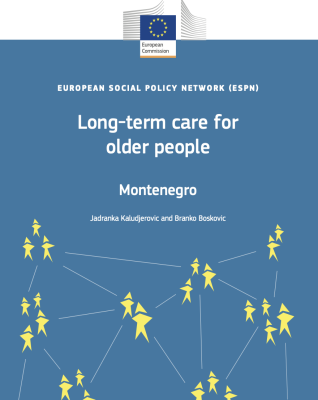 Description
Description
Long-term care for older people
Highlights
- The number of elderly people in Montenegro has been on the rise and a similar trend is expected in the following decades. Depending on fertility and mortality trends and levels of migration, the share of people aged 65+ in 2061 would range from 23.6% to 28.5% of the population.
- Long-term care (LTC) for the elderly is not a distinct social policy field in Montenegro. Social protection of elderly people is organised as a part of the integral system of social protection, which is under the jurisdiction of the Ministry of Work and Social Welfare. Healthcare is provided under the health system, which is under the jurisdiction of the Ministry of Health. Services are provided by public, private (profit and non-profit) organisations and individuals.
- The financing of LTC is centralised and all public service providers are financed from the national budget. Social protection is fully financed from the central budget out of government revenues, while healthcare is mainly financed from contributions.
- There is a legal obligation for adult children to care for their parents (Law on Social and Child Protection, 2017). Because of that, but also due to cultural norms, LTC is mainly provided by informal carers, mainly family members of the care-dependent person.
- The normative and quality framework has been improved, especially since 2017. There are 13 centres for social work and 27 licensed service providers in Montenegro. All institutions that provide care have to be licensed. However, other providers face difficulties obtaining a licence, due to their inability to meet the human resources and structural criteria required.
- Personal care workers and assistants have to be licensed in order to work in specific areas of social care. The Institute for Social and Child Protection provides a number of educational opportunities for personal care workers. However, research has shown the presence of multi-tasking and work overlap, suggesting a need for further improvements in order to achieve optimal service quality.
- LTC in Montenegro is still being developed, and there is a need to ensure the quality of service provision. Current and future users should be more aware of the possibilities they have. People with disabilities face additional social risks due to their vulnerability.
Read more:
ESPN_ME_long-term-care_2021.pdf
Publication can be downloaded by clicking on this link.

 Description
Description